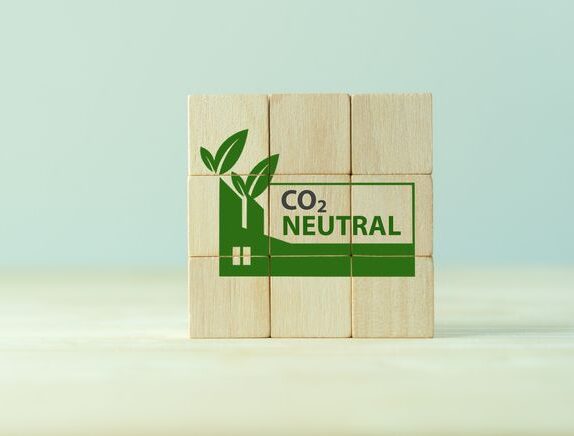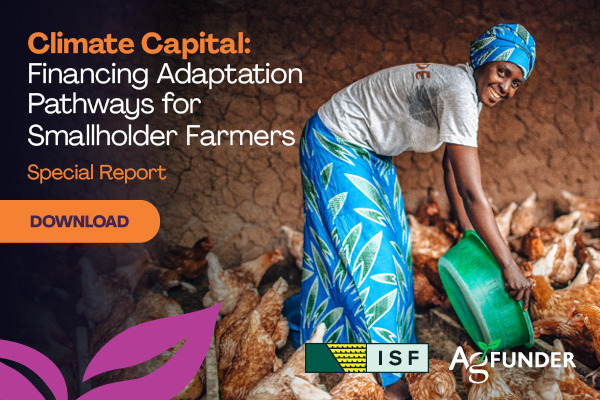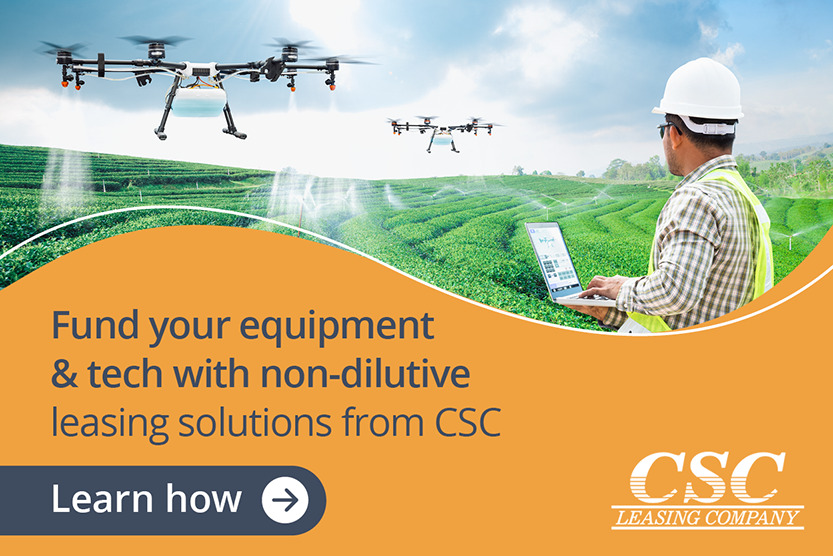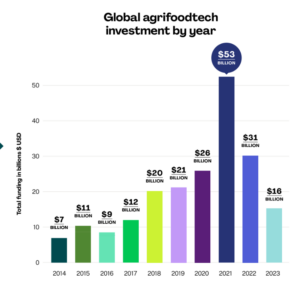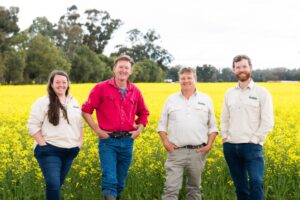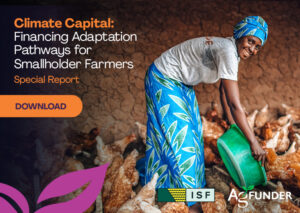What does ‘carbon neutral’ mean? According to a Morning Consult survey conducted last year, most Americans don’t know. Nestlé, meanwhile, is reportedly souring on the term, while Danone is facing a consumer class action lawsuit over its use on Evian bottled water.
So should companies use this term, and if so, in what circumstances?
There is no legal definition of ‘carbon neutral,’ and while the Federal Trade Commission’s (FTC’s) Green Guides offer some guidance on carbon offsets, they do not specifically define the terms ‘carbon neutral,’ ‘carbon negative,’ ‘climate-positive,’ or ‘net zero.’
The Guides, which are not legally binding, are nevertheless frequently cited in ‘greenwashing’ lawsuits, while some states have adopted them into state law, creating a confusing environment for manufacturers that operate in multiple states.
Is Congressional action needed to avoid ‘patchwork of state regulations’?
Against this backdrop, the FTC is currently determining whether to “retain, modify, or rescind” the guides, which were last updated in 2012, soliciting comments from industry, nonprofits and other stakeholders.
AgFunder News (AFN) sifted through public comments from key stakeholders to identify which sustainability claims—from ‘carbon neutral’ to ‘net zero’—they would like the FTC to define, and whether they believe legislation (rather than non-binding guidance) is the best way to tackle greenwashing.
HowGood: Carbon neutral claims should not be permitted if based entirely on offsets
“The FTC must spell out more clearly what kind of substantiation a company must use to substantiate a ‘carbon neutral’ claim. In particular, it should limit or forbid entirely a company’s use of offsets to achieve such a claim.
“The Green Guides currently require companies to ensure their sustainability claims are ‘truthful, not misleading, and supported by a reasonable basis,’ [but] companies are often not clear on how they must be able to substantiate their claims.
“Many greenwashing lawsuits hinge on what constitutes a ‘reasonable’ interpretation of the support or substantiation a company uses to justify its sustainability claims. Therefore, a key opportunity exists for the Green Guides to clarify the kind of substantiation required for certain claims (eg. carbon footprints calculated with GHG Protocol-compatible methodology) and the specific mechanisms through which such claims should be communicated (eg. requiring manufacturers with on-pack claims to have an easily-accessible ‘Learn more here’ QR code that takes consumers to their substantiation).”
National Advertising Division (NAD): Advertisers must ‘demonstrate that their goals and aspirations are not merely illusory’
“NAD has seen an uptick in the use of aspirational environmental benefit claims in recent cases [such as that against meat giant JBS over its ‘net zero by 2040’ claims]. Advertisers should demonstrate that their goals and aspirations are not merely illusory and provide evidence to support their commitments.
“When aspirational claims are tied to measurable outcomes, NAD has concluded that an advertiser must be able to demonstrate that it has a plan in place that could allow it to achieve the stated goal.”
Animal Legal Defense Fund: FTC should ban sustainability claims for animal products
“FTC should update the Guides to encompass standards for sustainability claims—including a specific ban on sustainability claims for animal products.”
The Environmental Working Group: ‘There is no such thing as Low-Carbon Beef’
“There is no such thing as ‘Low-Carbon Beef’ [a term now permitted by USDA for beef from cattle raised in a way that emits 10% less greenhouse gas than an industry baseline]. In fact, no food choice results in more greenhouse gas emissions than choosing beef… by any measure, choosing beef is a bad choice for the climate.”
Mars: ‘Consumer litigation around claims defined in the Green Guides is common’
“We would welcome an update to the Green Guides to provide all marketers with clearer guidance in this rapidly evolving space, including with respect to ‘carbon neutral,’ ‘net zero,’ ‘sustainable sourcing,’ ‘responsible sourcing,’ ‘regenerative agriculture,’ and carbon footprint-related claims in particular.
“Greenwashing is a prominent topic in the news and is threatening to undermine consumer confidence in business sustainability progress, achievements, and credentials. As a result, the term ‘greenhushing’ has recently been coined – conveying the tendency of companies to refrain from communicating about their sustainability credentials because of the risk of greenwashing challenges, even if such challenges lack a scientific basis.
“This is an unfortunate outcome – potentially delaying needed progress on sustainability action and limiting consumer understanding of brand action in this space – which could be avoided by clear and thorough guidance on how to credibly make sustainability claims in a variety of areas.
“Mars supports Congressional action on sustainability claims that would preempt state laws and regulations to avoid a patchwork of approaches that could stifle innovation, limit consumer understanding of claims, and present an unworkable regulatory framework for national brands.”
“Mass balance is a credible way to substantiate claims and in many supply chains is the only way to substantiate the sustainable sourcing of an ingredient given that sustainable and non-sustainable forms of the same ingredient are co-mingled high in the supply chain. Marketers should be transparent if sustainable raw materials are sourced via mass balance, and if so, explain the term for consumers.” Mars Inc
Unilever: Incorporate Green Guides into state law in all 50 states
“We encourage the FTC to work closely with all states to adopt the Green Guides into state law in order to avoid conflicting state requirements and ensure consistency in application and enforcement.”
World Wildlife Fund: Carbon negative claims ‘not appropriate;’ Green Guides should cover ‘ocean safe’ claims
“Claims that products or entities are carbon neutral, carbon negative, climate neutral, climate negative or net zero can mislead consumers into thinking that the product or entity has eliminated all of their emissions. Failing to address these misleading claims allows both of the following hypothetical companies to claim carbon neutrality:
Company A: Reduces 99% of scope 1, 2, and 3 emissions. Buys carbon credits in a volume equal to the remaining 1% of emissions.
Company B: Reduces 0% of scope 1, 2, and 3 emissions. Buys carbon credits in a volume equal to their total emissions.
“‘Carbon negative,’ used interchangeably with ‘climate positive,’ implies going beyond net zero to create an environmental benefit by removing more CO2 from the atmosphere than a company emits. We are not aware of any companies that have reached true net zero, and therefore these claims would not be appropriate for any company at this time.
“Claims relating to ‘ocean safe’ materials, marine biodegradability and marine degradability are not currently evaluated by the FTC. Similarly, claims regarding plastic neutral or neutrality and net-zero plastic are not evaluated. There has been increasing use of these terms, and given their inherent relation to plastic pollution, they should be considered in the Green Guides.”
Truth in Advertising: ‘It is all too easy for marketers to advertise illusory goals’
“The FTC has clearly recognized the danger of promoting corporate ambitions as the Green Guides specifically address carbon offsets and require that marketers clearly and prominently disclose if the promoted carbon offset represents emissions reductions that will not occur for two years or longer in order to avoid deception.
“But the Guides are otherwise silent with respect to touting long-term environmental objectives. Without clear FTC guidance regarding aspirational claims more generally, it is all too easy for marketers to advertise illusory goals rather than evidence-based objectives and outcomes.”
Green Dot Biplastics: ‘Testing and certifying new products for compostability is ridiculously expensive’
“Testing and certifying new products for compostability is ridiculously expensive. After thousands of lab evaluations on thousands of applications, the biodegradation and compostability profiles are very well known and documented. There is no reason to continue to test every single item made from these materials.
“The Green Guides should offer some mechanism to recognize that if a product is made from one of the known compostable bioplastics, then it is not required to offer additional certifications of compostability.”
Nestlé USA: Consumer confusion ‘likely to lead to lower recycling rates’
“Nestlé USA is not supportive of the FTC initiating rulemaking under the FTC Act with respect to environmental claims… Guidance [rather than legislation] “appropriately reflects that the context of an environmental claim matters and does not always lend itself well to a one-size-fits all definition.
“[However], there is a critical need for harmonization in the regulatory framework for environmental claims to help address the growing patchwork of state laws. For example, the California law SB 343 [coming into force in 2025] restricts the ability to use the three-chasing arrows symbol, while a number of other states mandate its use… This emerging set of differing requirements for recyclable claims at the state level can be expected to lead to consumer confusion as to which materials are recyclable, and such confusion is likely to lead to lower recycling rates and lower use of recyclable materials.
“The FTC could state clearly and unequivocally that it views environmental claims such as ‘recyclable’ as truthful and not misleading when the criteria in the Green Guides are followed, notwithstanding state laws that may differ from the Green Guides standard.”
Tyson Foods: Companies placed in a ‘challenging and in some cases untenable, compliance position’
“The limitations of the Green Guides have led to a patchwork of state approaches to manage claims such as biodegradable, recyclable, and compostable, as well as increasing consumer litigation. We encourage the FTC to conduct a formal rulemaking process on environmental benefit claims, with the outcome being issuance of formal regulations.
“Absent a standard and federal regulatory framework with preemption of conflicting state and local laws, companies are placed in a challenging and, in some cases untenable, compliance position and are further unable to communicate with consumers effectively or meaningfully due to the unavailability of consistent and standardized legal and regulatory environmental benefit claim definitions.”
Unilever USA: We need a public workshop on carbon claims
“Given the complexities and evolution of the voluntary carbon market and the high risk of greenwashing, the FTC should provide additional guidance on necessary substantiation for carbon offset and climate-based claims and ensure that it does not conflict with SEC climate disclosure rules. In addition, the FTC should consider a public workshop to seek stakeholder feedback on this topic.”
Consumer Brands Association: More guidance needed on carbon claims
“Claims including ‘net zero,’ ‘carbon neutral,’ ‘low carbon,’ and ‘carbon negative,’ have become popular in recent years. We encourage the FTC to conduct and solicit additional consumer perception testing to identify consumers’ interpretations of these claims, including through a dedicated workshop and additional round of comments.”
The Natural Resources Defense Council (NRDC): Term sustainable is ‘essentially meaningless’
Currently, the term ‘sustainable’ is both broad and vague, so much so that it is essentially meaningless. The FTC should bring standards and specific criteria to bear on this claim, including requiring a consideration of multiple factors upon which the product may be problematic for public health and the environment.
“We recommend that the term ‘recyclable’ and/or a chasing arrows symbol, not be allowed unless the item in question is likely to actually be recycled, not just collected for recycling.”
- Read all of the public comments.

